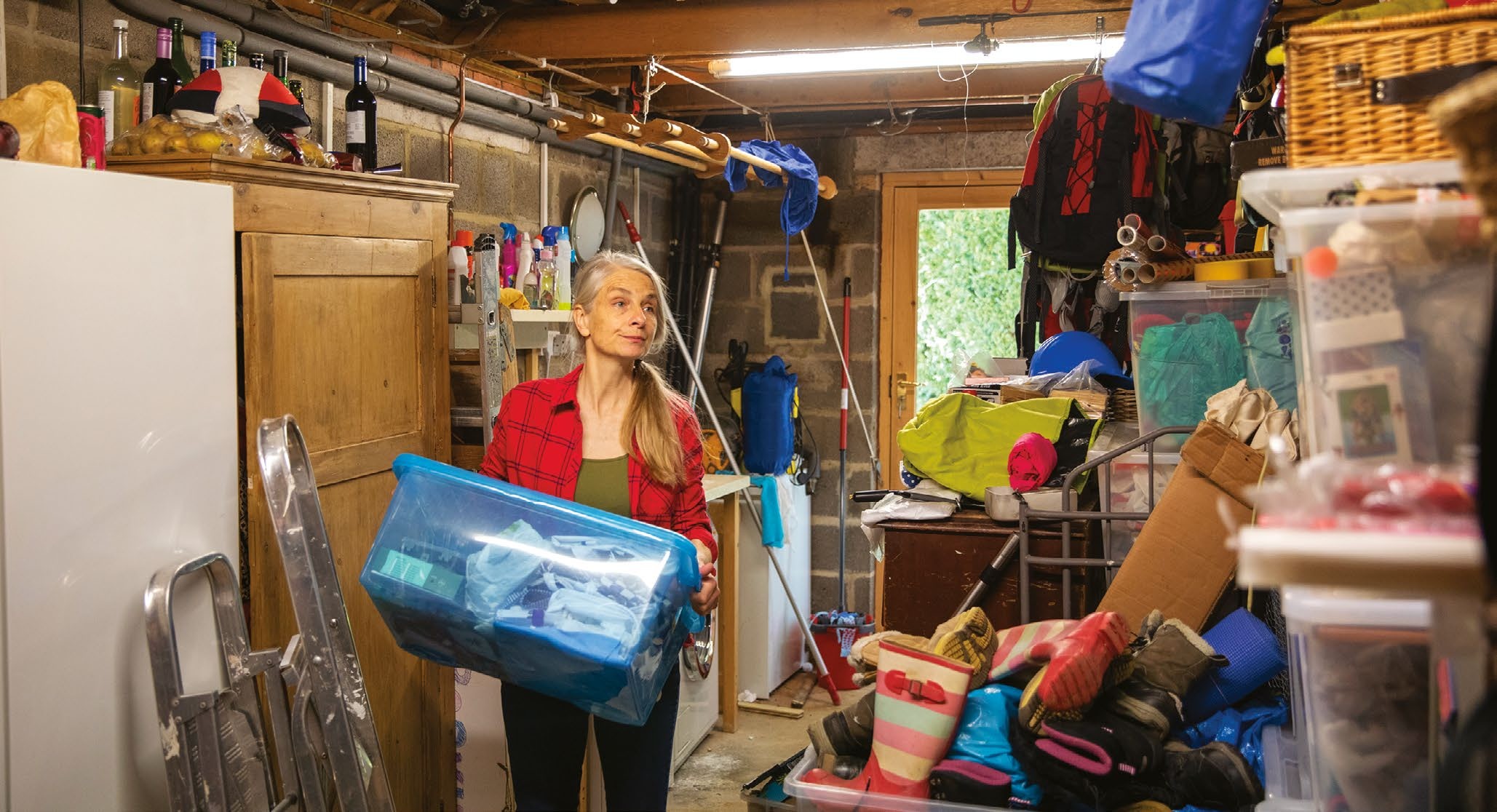Three Striking Ways the 'Big Beautiful Bill' Affects Nursing Homes
Little-noticed provisions in the tax bill will ease requirements on nursing homes and make it harder for some patients to pay.

Profit and prosper with the best of Kiplinger's advice on investing, taxes, retirement, personal finance and much more. Delivered daily. Enter your email in the box and click Sign Me Up.
You are now subscribed
Your newsletter sign-up was successful
Want to add more newsletters?
An effort to boost the staffing in nursing homes is among the lesser-known casualties of the recently approved budget and spending law, also known as the One Big Beautiful Bill (OBBB). The new law has several provisions that are likely to affect the staffing, affodability and demand for nursing homes.
1. Reducing the number of required nurses
Seeking to address chronic understaffing, the Biden administration last year finalized a rule setting minimum staffing standards for nursing homes, including a requirement that facilities have a registered nurse on-site 24 hours a day. Critics of the rule argued it could force some nursing homes out of business. In April, the law was stricken by a federal court in Texas. The new law delays implementation of that rule for 10 years.
“This means that many current and future nursing home residents will not receive the care they need, or will be harmed, because there are not enough staff available,” says Lori Smetanka, executive director of the National Consumer Voice for Quality Long-Term Care. “It is estimated that 13,000 lives will be lost each year due to understaffing. Understaffing puts residents at increased risk of abuse and neglect. It also increases the risks to workers of injury and harm.”
From just $107.88 $24.99 for Kiplinger Personal Finance
Become a smarter, better informed investor. Subscribe from just $107.88 $24.99, plus get up to 4 Special Issues

Sign up for Kiplinger’s Free Newsletters
Profit and prosper with the best of expert advice on investing, taxes, retirement, personal finance and more - straight to your e-mail.
Profit and prosper with the best of expert advice - straight to your e-mail.
2. Making Medicaid coverage for nursing home care more expensive
The law also changes the length of time that Medicaid will cover new beneficiaries retroactively. This retroactive coverage comes into play because the process for applying and being approved for Medicaid can be lengthy. It’s “complicated, and many older adults need assistance, both in gathering the information requested and filling out the forms,” Smetanka says.
Until now, once approved, Medicaid would pay for up to three months of retroactive care to make up for the time it took to get approval. “Now it will be two months. The delay will mean that some individuals will be responsible for paying out of pocket for a longer period of time, or delayed in getting accepted to Medicaid for longer,” Smetanka says.
At the same time, the law halts for ten years rules aimed at streamlining Medicaid eligibility and enrollment, according to the advocacy group, Justice in Aging. “This will make it harder for older adults to get and maintain Medicaid coverage by allowing states to maintain bureaucratic requirements, such as complex income verification paperwork and frequent renewals that currently prevent eligible people from gaining and maintaining coverage.”
Smetanka says, “We think it likely that facilities will require that individuals already be approved for Medicaid before being accepted as a resident, or have another payment source, because it puts them at risk, too.”
In 2028, the law will cap the amount of home equity an individual can have to qualify for Medicaid coverage for long-term care. This will affect those living in the 12 states that allow enrollment for people who have $1 million or more in home equity. The new law caps home equity at $1 million with no provision to increase the amount because of inflation.
“By capping the amount of equity in a home, and not adjusting for inflation, this law could force an older adult to sell their home in order to qualify for Medicaid,” Smetanka says.
3. Potentially increasing the number of people who need nursing home care
Justice in Aging says other provisions are likely to increase pressure on nursing homes as more people are forced to seek care in the facilities when Medicaid covers less home and community-based care. This, the organization says, will be the result of the law limiting taxes states can impose on Medicaid providers, which may force states to cut optional benefits or eligibility categories. “Home-and community-based services account for the majority of optional spending and are likely to be cut first, leading to longer waiting lists and more institutionalization.”
At the same time, news outlets, including the Associated Press and the New York Times, are reporting that immigration crackdowns are creating staffing problems at nursing homes, which rely heavily on immigrant workers. As noted by AP, more than a quarter of an estimated 4 million nursing assistants, home health aides, personal care aides and other direct care workers are foreign-born, according to PHI, a nonprofit focused on the caregiving workforce.
Note: This item first appeared in Kiplinger Retirement Report, our popular monthly periodical that covers key concerns of affluent older Americans who are retired or preparing for retirement. Subscribe for retirement advice that’s right on the money.
Read More
Profit and prosper with the best of Kiplinger's advice on investing, taxes, retirement, personal finance and much more. Delivered daily. Enter your email in the box and click Sign Me Up.
Elaine Silvestrini has worked for Kiplinger since 2021, serving as senior retirement editor since 2022. Before that, she had an extensive career as a newspaper and online journalist, primarily covering legal issues at the Tampa Tribune and the Asbury Park Press in New Jersey. In more recent years, she's written for several marketing, legal and financial websites, including Annuity.org and LegalExaminer.com, and the newsletters Auto Insurance Report and Property Insurance Report.
-
 3 Smart Ways to Spend Your Retirement Tax Refund
3 Smart Ways to Spend Your Retirement Tax RefundRetirement Taxes With the new "senior bonus" hitting bank accounts this tax season, your retirement refund may be higher than usual. Here's how to reinvest those funds for a financially efficient 2026.
-
 5 Retirement Tax Traps to Watch in 2026
5 Retirement Tax Traps to Watch in 2026Retirement Even in retirement, some income sources can unexpectedly raise your federal and state tax bills. Here's how to avoid costly surprises.
-
 Trump's New Retirement Plan: What You Need to Know
Trump's New Retirement Plan: What You Need to KnowPresident Trump's State of the Union address touched upon several topics, including a new retirement plan for Americans. Here's how it might work.
-
 Private Capital Wants In on Your Retirement Account
Private Capital Wants In on Your Retirement AccountDoes offering private capital in 401(k)s represent an exciting new investment opportunity for "the little guy," or an opaque and expensive Wall Street product?
-
 10 Things to Know About Decluttering
10 Things to Know About DeclutteringYou’ve spent a lifetime amassing your stuff. Here’s how to get rid of it.
-
 It's Time to Rethink What 'Aging Well' Means
It's Time to Rethink What 'Aging Well' MeansDon’t fall into the trap of thinking there is a "right way" to age. Here's how to reframe aging in a healthy, achievable way.
-
 The New Rules of Retirement
The New Rules of RetirementPopular guidelines about how to save, invest and spend need to be updated and personalized to ensure you'll never run out of money.
-
 I’ve Played 1,300-plus Golf Courses: These Are the 4 on My 'Must-Play' List for 2026
I’ve Played 1,300-plus Golf Courses: These Are the 4 on My 'Must-Play' List for 2026These four luxury golf courses offer an extraordinary experience for players this year.
-
 What to Do If You Plan to Make Catch-Up Contributions in 2026
What to Do If You Plan to Make Catch-Up Contributions in 2026Under new rules, you may lose an up-front deduction but gain tax-free income once you retire.
-
 You Saved for Retirement: 4 Pressing FAQs Now
You Saved for Retirement: 4 Pressing FAQs NowSaving for retirement is just one step. Now, you have to figure out how to spend and maintain funds. Here are four frequently asked questions at this stage.
-
 3 Trips to Escape the Winter Doldrums, Including An Epic Cruise
3 Trips to Escape the Winter Doldrums, Including An Epic CruiseThree winter vacation ideas to suit different types of travelers.